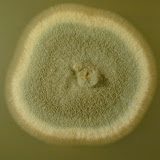A recent study published in the journal of Indoor and Build Environments found that when building HVAC systems are shut down, airborne bacterial and mold concentrations dramatically increase. The study investigated the relationships between the airborne bacteria levels, mold levels, and thermal environmental parameters, i.e., air temperature and relative humidity, in offices with a Heating Ventilation and Air-Conditioning (HVAC) system operating. A total of 101 samples were collected from two typical air-conditioned office buildings. There was evidence that intermittent operation of the HVAC system may significant influence both indoor airborne bacteria and mold levels. The results showed significantly higher airborne bacteria and mold levels in offices during non-office hours when air-conditioning systems were shut down as compared to offices where HVAC systems were left running during non-office hours. The study shows that the airborne bacteria and mold levels correlated with the thermal environmental parameters, i।e. lack of airflow, increase humidity and ambient heating from the outside environment.
Citation
Wong, L।T., K.W. Mui, P.S. Hui, W.Y. Chan, and A.K.Y. Law. "Thermal Environmental Interference with Airborne Bacteria and Fungi Levels in Air-Conditioned Offices." Indoor and Built Environment". 17.2 (April 2008): 122(6).
Author's Comments
The findings of this study indicates greater research is needed related to HVAC systems and cost saving provisions, such as after hour shutdown. Property managers and plant managers for schools and office buildings should be aware of these findings. Or more importantly they should bring it to the attention of the proper decision makers. When companies or schools try to save money by shutting down the HVAC during after-hours they may not be aware that they may also create indoor air quality problems. This study found that workers are exposed to elevated concentrations of mold and bacteria when HVAC systems are shut down after hours. Healthy workers are more often more productive, take less sick days, and in general, add to a enjoyable workplace. Even though mold has not been directly linked to major illness in healthy individuals, the effects of long term exposure remain unknown. Moreover, individuals allergic to mold and asthmatics will experience likely experience respiratory symptoms. Their symptoms may not be life threatening, but those individuals will likely not feel 100%. Everyone has had a cold from time to time. It's no fun to be working with a stuffy head and sore throat. But we do it and the cold passes. Just imagine if you went to work everyday and had to deal with cold-like symptoms. It wouldn't be much fun.

No comments:
Post a Comment